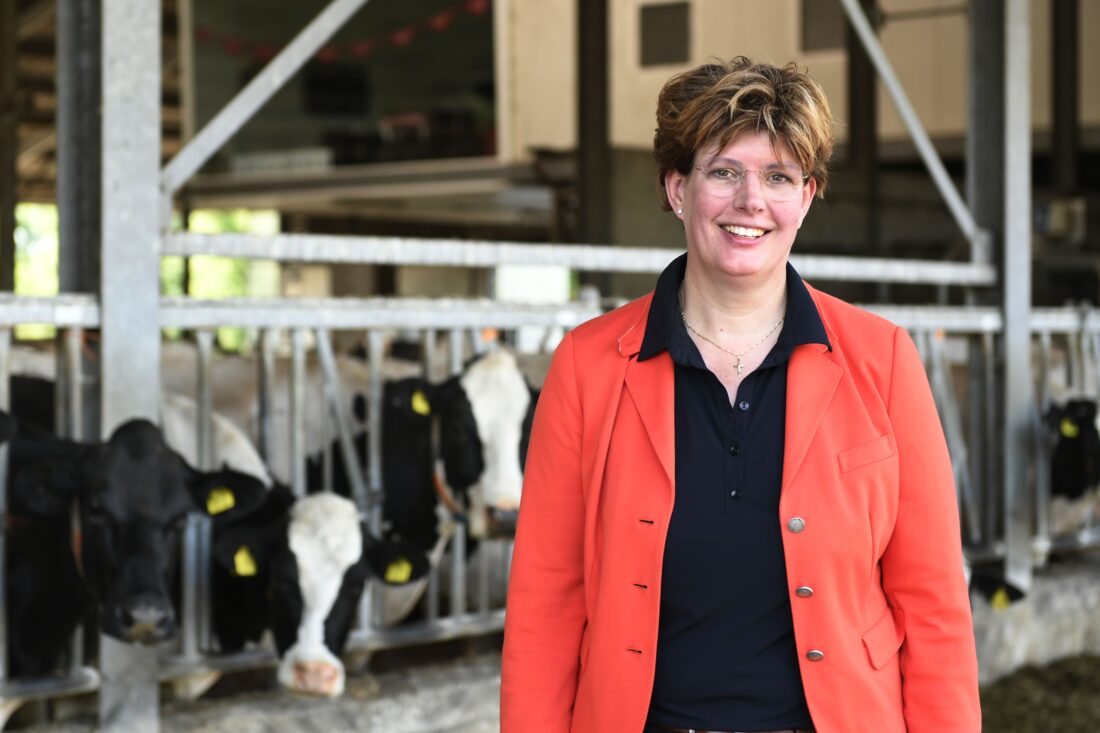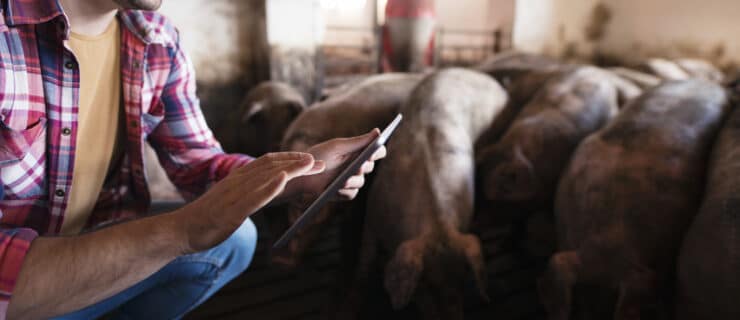The Dutch agriculture and horticulture sector is facing a transition “that is unprecedented”. According to Rabobank, this transformation can succeed only if farmers and horticulturists start to use more data, to demonstrate that they are working in a more sustainable way.
“Just saying that you will achieve objectives will not suffice. We need data to demonstrate that we ensure, for example, less nitrogen-emission, use water more carefully, documentation of CO2, etcetera.” Carin Van Huët, president of Food & Agri Nederland Rabobank, names a few important current challenges that affect the work methods of agricultural entrepreneurs.
Demonstrating
However these challenges are documented in policies and regulations, the effect will more and more often be measured on the basis of data. “As such, it may seem as if the data is required mostly for the authorities. But data can also help you, as an entrepreneur, to take better decisions. Or to realize innovations concerning your business.”
In practice, Van Huët notices that agricultural entrepreneurs already respond to the new opportunities offered by data. “But not everybody sees the opportunities yet. I think that entrepreneurs need to make a conscious choice whether to join in on this development. Because if you don’t, it will be increasingly more difficult to sustain your business.”
Farmer at the helm
The fact that farmers gain and keep control of their data is the most important aspect, according to the Rabobank-president. Currently, in practice, there are a lot of different kinds of authorizations for the use of data, issued over the years, by entrepreneurs, to various parties. They often don’t know to whom and for which purpose these authorizations were issued. “Via My JoinData, that is all made insightful and you can manage your own authorizations. You can issue them, but also withdraw them, at any time. This way, the farmer is back at the helm where the data of his business is concerned,” according to Van Huët. And the fact that the entrepreneur must pay 50 Euros per year for that is “quite cheap”, according to the Rabobank-president. “I think that the present situation, with all the different work methods, is costing more. These costs are often encrypted in the price of products and services, which is not really transparent.”
Interest rebate
One of the practical examples showing this, is the policy of the Rabobank itself. The bank offers a discount on the interest for a loan if a business achieves certain sustainability goals. In order to establish that, data from, for example, the kringloopwijzer and the biodiversity-monitor, play an important role. These are examples from dairy farming, but also for other sectors this exchange of data will be hugely important.
“This way, more and more data flows are starting,” Van Huët concludes. “It is in the interest of the entrepreneurs that we have more uniformity. The exchange and sharing of data will become easier if all players use the same method.” And JoinData is the best tool for that, according to Rabobank. “We are associated with JoinData, because this platform makes it possible to have entrepreneurs decide whom they supply the data to and to standardize data flows. This will create a standard in the sector that contributes to ease of use and efficiency.”

Safety
In terms of data, privacy and safety are important issues. How to ensure that your personal data does not fall into the wrong hands? That is well-arranged at JoinData, Van Huët can tell. “Everything is done in accordance with the CCPA-rules of play, even if it doesn’t concern personal-sensitive data.” And what about a hack, that’s a break-in by criminals who want to steal data or blackmail companies? “JoinData transports data, but does not store it themselves. That makes the odds of a hack very remote. In addition, the organization has built a well-secured digital highway.”
Van Huët thinks that safety of data should be regarded in a broader perspective. “How do we ensure that a hacker doesn’t get the opportunity on the farming business’s own systems? I know that many farmers and horticulturists, just like other entrepreneurs, want to improve things with regard to this. In reality, there is a need for a guideline in this field. Maybe JoinData can play a role here, to support individual entrepreneurs,” Van Huët suggests.
Chain benefits
An objection against sharing of data, which is expressed sometimes, is that it will only lead to benefits for other parties and is useless to the farmer. Van Huët considers that short-sighted. “You notice more and more innovative partnerships in chains. Data play a significant role there, to be able to give guarantees about the product or the production method. Farmers who join do indeed not get a 1 on 1 compensation for supplying their data. But it does make it possible to participate in a concept that also reinforces the farmer’s revenue model. And of course you personally decide whether or not you want to join.”



